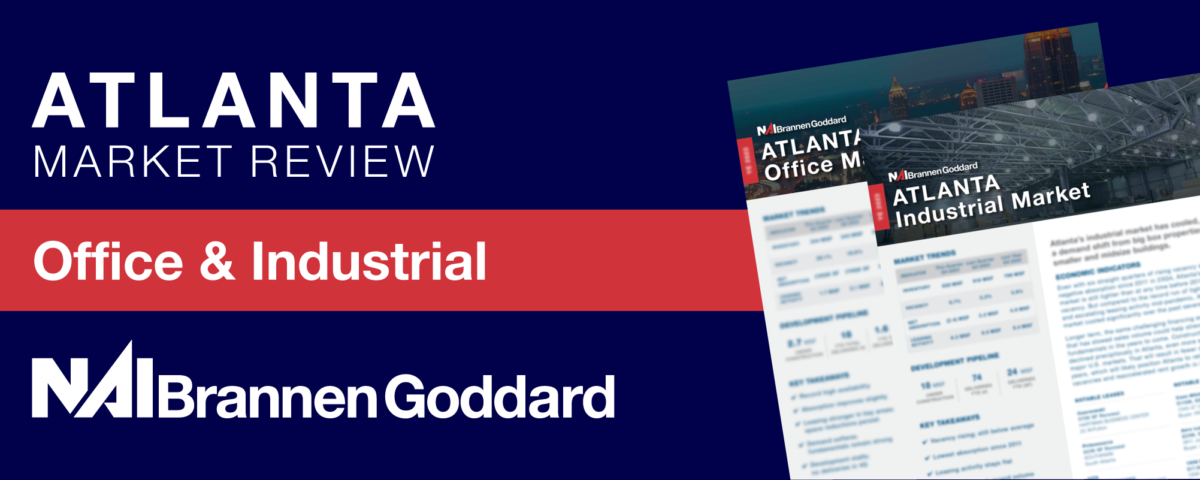
NAI Brannen Goddard Facilitates Land Sale for The Rose Golf Club, a Premier Development Backed by Golfing Legend Bubba Watson
February 19, 2024
NAI Global: Market Facts & Trends 2024
April 25, 2024Atlanta Office & Industrial Market: First Quarter 2024

First Quarter 2024
The challenges facing the office market have become more entrenched over the past year here, just as they have nationally. Several major local employers implemented space consolidation plans in 2023, resulting in steep negative absorption for the market. That reversed the reprieve seen in 2022, when a wave of tech-company move-ins stabilized vacancy. In the months ahead, the market faces three key headwinds: new supply, shrinking lease sizes, and sublease space. Still, Atlanta’s long-term appeal remains intact, and a handful of high-profile leases signed in the last few months have raised optimism among market participants, suggesting how the eventual recovery might play out. The precipitous fall in office construction starts could provide some longer-term relief.
Momentum in Atlanta’s industrial market has slowed after years of record-low vacancy rates and record-high leasing activity. While net absorption remained positive in Q1, it lagged behind the robust pace set before the pandemic. Net absorption totaled 2.4 million square feet. With seven consecutive quarters of rising vacancy, Atlanta’s overall industrial vacancy rate has climbed above the 10-year average of around 6%.
The volume of speculative industrial projects completing construction remains elevated compared to historical norms. With fewer speculative projects expected to deliver in 2025 and 2026, the Atlanta industrial market is well-positioned to return to tighter vacancy rates and re-accelerating rent growth over the next few years.
The market’s strong fundamentals and continued population growth should drive a resurgence in tenant demand once the current adjustment period passes.
